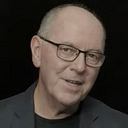Why the Future of Work is No Longer in Our Hands
The Non-Obvious Cycles Driving AI’s Influence and What It Means for Our Future
The current economic environment requires our astute analysis. We’ll likely enter a recessionary phase, and corporations will double down on using AI to replace knowledge-worker humans in an expanding array of jobs. During recessions, companies are often pushed to prioritize cost-cutting measures, and AI offers a tantalizing solution for maintaining profitability and satisfying shareholders. In this climate, increased productivity might not lead to higher wages or job security for workers but to layoffs as companies chase short-term financial stability.
Listen to the Deep-Dive Podcast.
What strikes me is how corporations behave during economic downturns. They typically become more risk-averse, focusing intensely on their bottom line. This will lead to an even greater emphasis on AI adoption, especially in sectors where automation can be easily implemented. The recession could act as a catalyst, accelerating AI deployment to cut labor costs and boost efficiency. Shareholders demand dividends even in a down market, which might push companies to invest heavily in AI, further reducing their reliance on human workers.
But as I think about these issues, they are part of a much broader and deeper set of cycles. First, the eternal philosophical question shadows every aspect of our existence: our relatively short time in life. We don’t choose when or where we are born and have little influence over how long we’ll live. This makes the rapid changes AI is bringing even more jarring. Our time on Earth is finite, yet we’re facing a technological revolution that could fundamentally alter how we spend that time — potentially stripping away the livelihoods that give our lives structure and purpose. In a way, AI’s rise feels like it’s amplifying the existential questions we’ve always faced, but now with an added layer of technological determinism. This concept suggests that technology shapes society and human behaviour rather than the other way around, which we didn’t sign up for.
At the same time, AI’s expansion is happening during geopolitical and economic turmoil. Global tensions are high, economies are unstable, and AI is gaining influence at an astonishing rate amid this uncertainty.
It’s not just a tool anymore; it’s becoming a force that will reshape entire industries, economies, and societies. The timing couldn’t be worse for those who are already vulnerable — the low-income and middle-class families who have long been at the mercy of a capitalist system that has shown, time and again over the last two centuries, that its primary concern is profit. Wage-earning citizens face a future where the jobs they rely on could disappear, not because of market forces alone but because of a technology being deployed to maximize profits regardless of the consequences.
And where are the governments in all of this? It feels as if governments everywhere are asleep at the wheel, unwilling or unable to confront the global technology companies that are becoming more powerful daily.
The largest tech companies are not like most businesses; they are entities with the potential to influence every aspect of our lives, from how we work to how we think. And yet, policymakers seem to have little appetite to intervene, to check on this power, or to protect the majority of citizens who are at the mercy of capitalism and the technologies it spawns.
In this context, the narrative around AI isn’t just about job loss or productivity gains — it’s about a much more significant and troubling shift. We’re witnessing a confluence of cycles pushing us toward a future where the very structure of society could be upended.
AI is not just another technological advancement; it’s a force that’s emerging at a critical juncture in human history, one that could redefine what it means to work, live, and be human in a world where time, choice, and power are increasingly slipping out of our control.
It’s a perspective that underscores the urgency of the AI discussion. It’s no longer simply about riding the AI wave but recognizing the broader currents shaping our world and understanding that AI is a product of these forces and a catalyst for accelerating them. The time to act is now, as AI’s societal impact is already being felt, and its influence is only set to grow. We need governments to act decisively to shape AI’s future, or AI will shape our future.
The challenge posed by AI isn’t just technological; it’s deeply human, philosophical, and political. If we delay addressing these profound issues, we risk finding ourselves in a world where the answers to these age-old questions are decided not by us but by the machines we’ve created. This is a technological challenge and a fundamental question of our humanity and the society we want to live in.
About the author: Greg Twemlow, Founder of XperientialAI©.
Greg Twemlow: Sharing what I’ve learned from my career of 35 years as a citizen of the world, parent, corporate executive, entrepreneur, and CEO of XperientialAI, focused on experiential learning for maximum impact with AI. Contact Greg: greg@xperiential.ai
